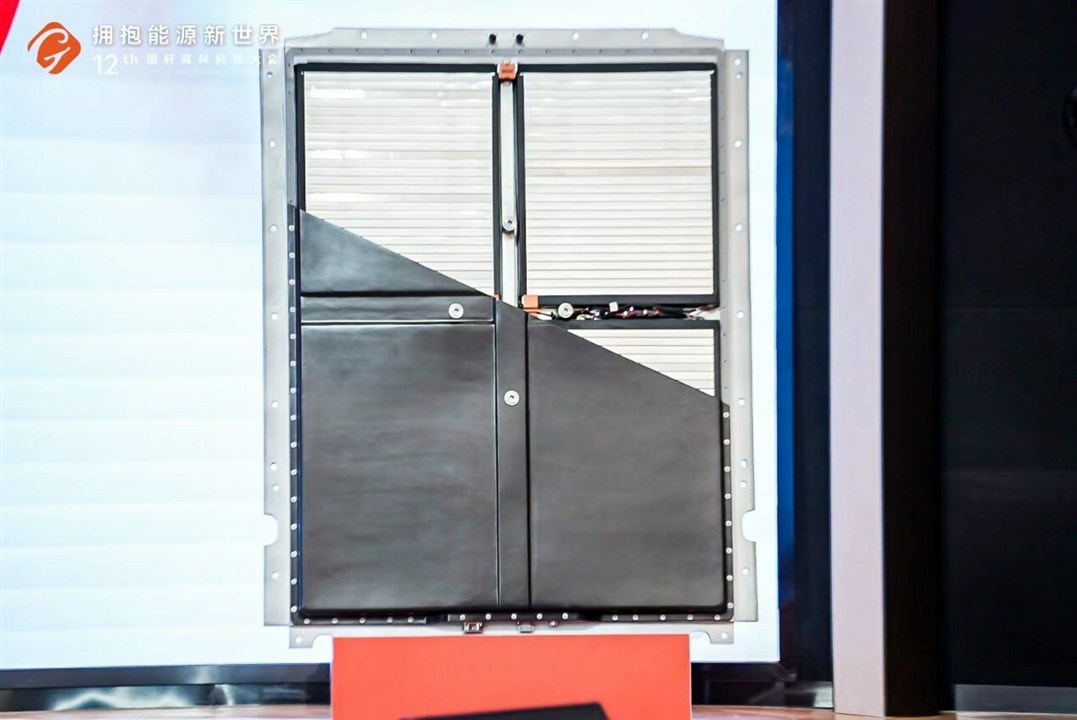
The new Astronimo battery has a range of 621 miles on a single charge. (Image Credit: Gotion High Tech)
Gotion High Tech, a Chinese battery startup, recently introduced its new L600 lithium-maganese-iron-phosphate (LMFP) Astronimo battery. The company says this high-performance battery, which underwent research for a decade, passed all safety tests and achieves 621 miles of range on a single charge. It expects to start mass production in 2024.
The battery maker addressed lithium iron phosphate battery problems that prevented energy density improvements. So it upgraded the chemistry by using co-precipitation, new granulation technology, doping encapsulation technology, and new electrolyte additives. These changes allowed the Astroinno battery to achieve 4000 cycles (2.4 million miles), 240Wh/kg weight energy density, and 525Wh/L energy density.
"The volumetric cell-to-pack ratio has reached 76% after adopting the L600 cell, and the system energy density has reached 190Wh/kg, surpassing the pack energy density of current mass-produced NCM cells. It is due to the high energy density of Astroinno battery that we can enable a range of 1000km without relying on NCM materials," said Cheng Qian, executive president of the International Business Unit of Gotion High-Tech.

The Astronimo battery pack. (Image Credit: Gotion High Tech)
The battery uses sandwich-structure double-sided liquid cooling technology and a minimalist design that decreases the number of structural parts by 45% and lowers the structural parts' weight by 32%. "The minimalist electrical design enables the length of the battery pack wiring harness to drop from 303 meters to 80 meters, which is only 26% of that of previous battery packs, but the volumetric cell to-pack ratio has reached 76%, and the pack energy density has reached 190Wh/kg, outperforming the energy density of NCM batteries currently on the market."
At this point, Volkswagen has a supply deal with the battery maker. However, it's still a mystery if it will be the first one to use these new battery cells.
In addition, it adopts advanced thermal insulation technology, allowing the battery to withstand temperatures reaching 1200°C. This is "equivalent to putting a layer of heat-insulating skin on the battery cell surface." The team also says it passed all hot box, penetration, overcharge, over-discharge, thermal runaway, short circuit, and crush tests according to the national standard.
Have a story tip? Message me at: http://twitter.com/Cabe_Atwell
